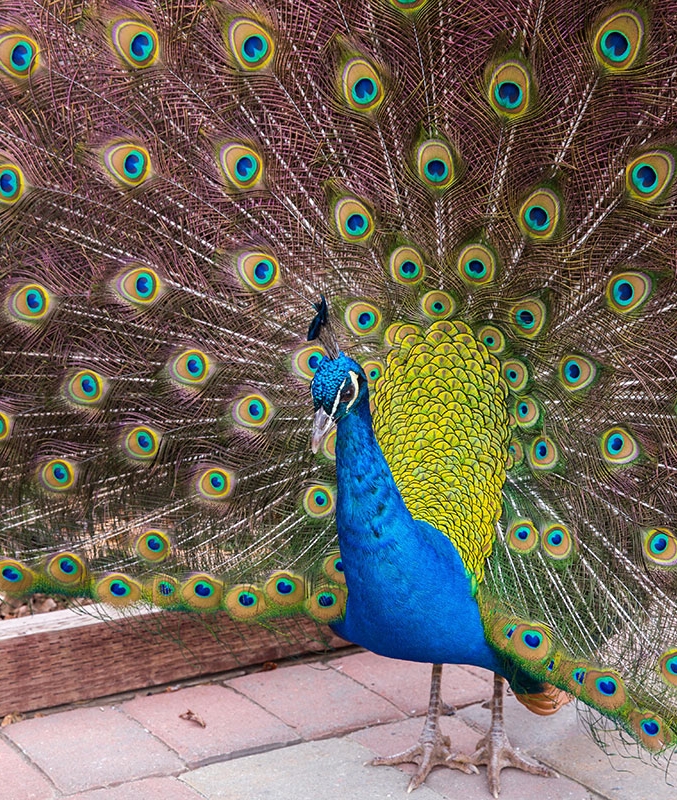Inspired Vegan Food at Jyun Kang Restaurant at the City of 10,000 Buddhas

by Caroline Radice | photos by Ree Slocum
Vegetarian restaurant Jyun Kang is nestled back in the grounds of the City of Ten Thousand Buddhas in the Talmage area just southeast of Ukiah. Jyun Kang means “to your health,” a philosophy demonstrated in their menu of vegan stir-fries, noodle soups, curries and more. The food is nutritious, fresh and vibrant, and a lunch at the restaurant is the perfect antidote for a rainy spring day.
The City of Ten Thousand Buddhas, a Buddhist community and monastery, is one of the largest Buddhist communities in the Western Hemisphere. “The City” is comprised of around 700 acres of land with about 80 developed acres, which includes the Hall of Ten Thousand Buddhas, the Dharma Realm Buddhist University as well as elementary and secondary school programs, and a nine acre CCOF-certified organic farm. The farm has walnut trees, grape vines, and an organic vegetable garden. During the summer months, some of the food for the restaurant is sourced from the garden, where the community grows winter squash, beets, potatoes, eggplant, taro, goji berries, and much more. Many of these crops, plus vegetables from the winter garden are used in the dining hall where the residents of the community eat every day.
The farm promotes sustainable agriculture that cherishes the land and all life, from the many peacocks that roam the grounds to wildlife like deer, who find ways to get over and through fences here, a universal challenge faced by many farmers and gardeners. At the City of Ten Thousand Buddhas, the gardeners look for ways to coexist peacefully and don’t resort to violent or harmful practices when they’re faced with the challenge of wildlife in the garden. The farm has a large composting operation, and works with a nearby vineyard to utilize the waste stream of grape pomace, a byproduct of pressing juice for wine, to improve the soil. Rich in nitrogen, the pomace, made up of the skins, pulp, seeds and stems of the grapes, is an excellent soil amendment. One of the most remarkable sights on the farm is the hanging garden, where kabocha and butternut squash are grown up off the ground on sturdy metal trellises, resulting in high yields of excellent quality vegetables. The kabocha squash is a popular variety, with rich, flavorful flesh that’s delicious in stews and curries.
Whether you’re vegetarian, vegan or an omnivore, the emphasis on fresh, organic vegetables at the City of Ten Thousand Buddhas and Jyun Kang Restaurant is inspiring and thought-provoking. There are certainly a lot of reasons to consider vegetarianism, like a desire to practice compassion for animals and to support a movement away from factory-farming. There are also many health benefits to eating a plant based diet, and numerous advantages to the environment as well. If you’re not ready for a full-time commitment, a meal at the restaurant can serve as inspiration to eat vegetarian food more often. Food writer Mark Bittman wrote: “Part-time veganism is a strategy for integrating the reigning wisdom—eat more plants, less hyper-processed stuff, fewer animal products— into lives that have, until now, been composed of too few of the first and too many of the second and third.”
Philosophy, health and environmental issues aside, though, you really have to try the dumplings. They are filled with vegetables and nuts ground almost like a paté, full of wonderful flavors and surrounded by dense but not heavy dumpling dough. They are especially good with the light vinegar available on each table. Another favorite is the lightly sautéed eggplant, cooked to perfection and accented with fresh basil. The vegetable curry showcased a medley of fresh vegetables in red curry, creamy and not too spicy (our spice level request was “medium”). The house tea was a gentle sipping tea and rounded out the meal beautifully.
Life is too short to eat boring food! If you’re not excited about your lunch today, change your plans and go get a seat at Jyun Kang. You’ll be happy you did.



